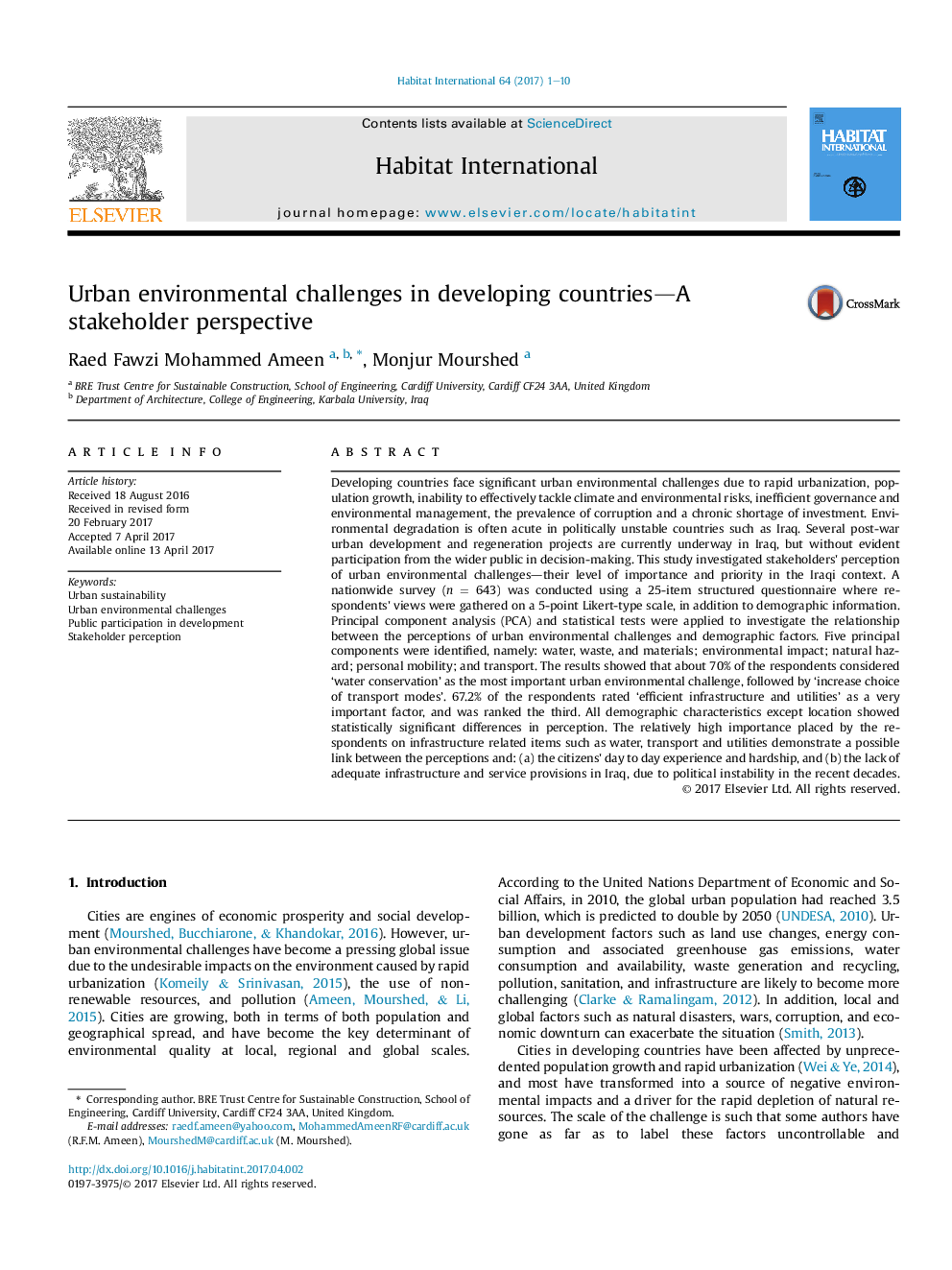| کد مقاله | کد نشریه | سال انتشار | مقاله انگلیسی | نسخه تمام متن |
|---|---|---|---|---|
| 5114673 | 1484480 | 2017 | 10 صفحه PDF | دانلود رایگان |
عنوان انگلیسی مقاله ISI
Urban environmental challenges in developing countries-A stakeholder perspective
ترجمه فارسی عنوان
چالش های زیست محیطی شهری در کشورهای در حال توسعه - یک دیدگاه ذینفعان
دانلود مقاله + سفارش ترجمه
دانلود مقاله ISI انگلیسی
رایگان برای ایرانیان
کلمات کلیدی
پایداری شهری، چالش های زیست محیطی شهری، مشارکت عمومی در توسعه، درک متقابل،
موضوعات مرتبط
علوم انسانی و اجتماعی
علوم اجتماعی
توسعه
چکیده انگلیسی
Developing countries face significant urban environmental challenges due to rapid urbanization, population growth, inability to effectively tackle climate and environmental risks, inefficient governance and environmental management, the prevalence of corruption and a chronic shortage of investment. Environmental degradation is often acute in politically unstable countries such as Iraq. Several post-war urban development and regeneration projects are currently underway in Iraq, but without evident participation from the wider public in decision-making. This study investigated stakeholders' perception of urban environmental challenges-their level of importance and priority in the Iraqi context. A nationwide survey (n = 643) was conducted using a 25-item structured questionnaire where respondents' views were gathered on a 5-point Likert-type scale, in addition to demographic information. Principal component analysis (PCA) and statistical tests were applied to investigate the relationship between the perceptions of urban environmental challenges and demographic factors. Five principal components were identified, namely: water, waste, and materials; environmental impact; natural hazard; personal mobility; and transport. The results showed that about 70% of the respondents considered 'water conservation' as the most important urban environmental challenge, followed by 'increase choice of transport modes'. 67.2% of the respondents rated 'efficient infrastructure and utilities' as a very important factor, and was ranked the third. All demographic characteristics except location showed statistically significant differences in perception. The relatively high importance placed by the respondents on infrastructure related items such as water, transport and utilities demonstrate a possible link between the perceptions and: (a) the citizens' day to day experience and hardship, and (b) the lack of adequate infrastructure and service provisions in Iraq, due to political instability in the recent decades.
ناشر
Database: Elsevier - ScienceDirect (ساینس دایرکت)
Journal: Habitat International - Volume 64, June 2017, Pages 1-10
Journal: Habitat International - Volume 64, June 2017, Pages 1-10
نویسندگان
Raed Fawzi Mohammed Ameen, Monjur Mourshed,
